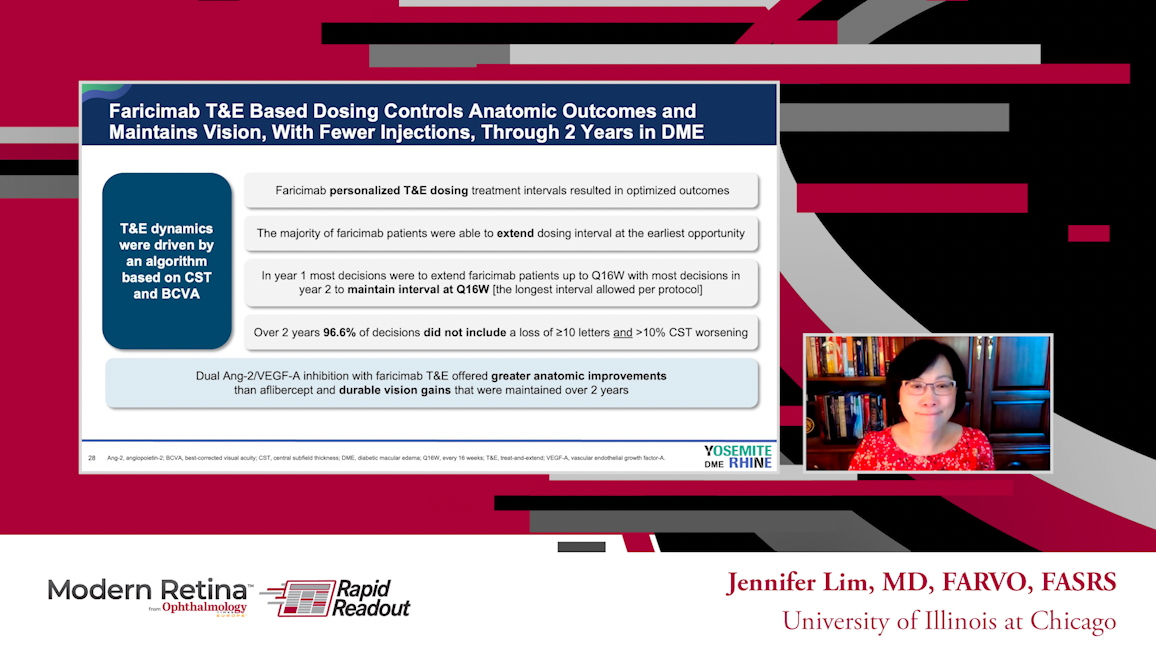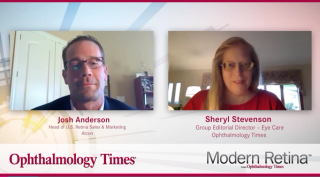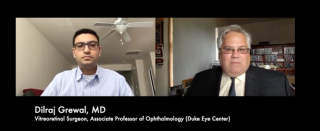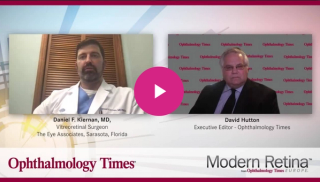
Retinal Surgery
Latest News
Latest Videos
CME Content
More News

Early clinical studies indicate that Vitargus® has unique properties that could eliminate the need for patients to remain face-down after retinal detachment and vitreous hemorrhage surgery.

With the newly modified lighted endolaser probe, an 18-gauge angiocatheter sleeve protects against vitreous disturbance.

The presentations highlighted the Clearside Biomedical’s efforts in suprachoroidal delivery of agents to the back of the eye.

Dr Ong and colleagues undertook a retrospective study of patients who underwent primary repair of uncomplicated RRDs at the Wilmer Eye Institute to examine the baseline, surgical, and postoperative characteristics that affect best-corrected VA (BCVA) outcomes.
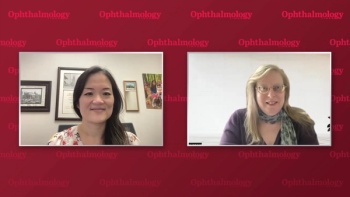
Sally S. Ong, MD, shares the key takeaways from her presentation, Predictors of Poor Visual Outcome After Repair of Uncomplicated Rhegmatogenous Retinal Detachments, at the 11th Annual Vit-Buckle Society meeting.
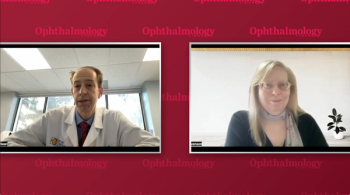
Sean D. Adrean MD, FAAO, discusses the key takeaways from his presentation, Purposeful Pneumatic Induced Resorption of Submacular Fluid in Macula-off Retinal Detachments, at the 11th Annual Vit-Buckle Society meeting, April 13 to 15, in Las Vegas, Nevada.

Jennifer Lim shares research on vitrectomy combined with KPro surgery
Jennifer Lim, MD, FARVO joined David Hutton, Managing Editor, Ophthalmology Times®, to discuss her presentation on keratoprosthesis combined with vitrectomy surgery given at this year's Vit-Buckle Society meeting.

J. Peter Campbell, MD, MPH, sat down with David Hutton, Managing Editor, Ophthalmology Times®, to discuss pediatric retina surgery and 3 key pearls to consider while performing the surgery.

According to the companies,Horus will increase Iluvien’s commercial presence with Nordic retinal specialists.

Delegates will analyze the most relevant and controversial issues within the field of ophthalmology at this year’s congress in Lisbon, Portugal, from March 24 to 25.

Physicians should consider hydrodynamic cavitation when performing this procedure.
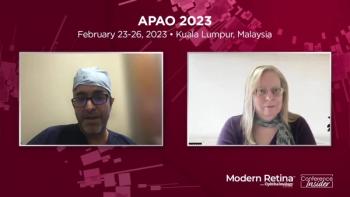
Jay Chhablani, MD, provides an overview of the Subthreshold Ophthalmic Laser Society treatment guidelines for patients with diabetic macular edema.

Yusuke Oshima, MD, PhD, in a presentation at the 38th Asia-Pacific Academy of Ophthalmology Congress, Kuala Lumpur, Malaysia, discussed the advantages of using a beveled-tip ultra-speed probe for complete vitreous shaving during retinal detachment vitrectomies.

According to the company, the approval allows Eyenuk’s EyeArt AI eye screening system, already approved for detection of diabetic retinopathy, to aid millions of additional patients at risk for vision loss.

A team of researchers have found that STOC tomography enables unprecedented views of eye structure.

As a therapy for vision impairment resulting from inherited retinal degeneration, or IRD, the mRNA would instruct photoreceptor cells – faulty because of a genetic mutation – to manufacture the proteins needed for sight.

Researchers discovered that all patients had similar single surgery success rates but that minority patients had significantly worse vision outcomes and were more likely to have multiple retinal breaks.

2023: What awaits ophthalmology in the year ahead
As we approach the end of 2022, members of the Ophthalmology Times Europe® Editorial Advisory Board were asked to predict developments in their ophthalmic specialties and interests. A focus is our ageing population, while efficiency and productivity are also on their minds. The board members agree that one of the major challenges in the year to come will be the large number of patients awaiting diagnosis and treatment, which is only going to increase with the rising average life expectancy worldwide.
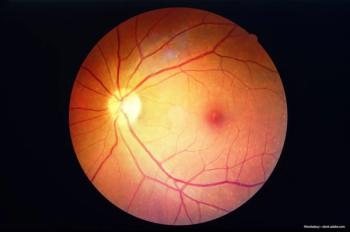
An end-of-week review of retina news and stories from October 29-November 3, 2022.

The investigators suggested that the predicted metastasis-free survival for metastatic tumors may be worse than what they and other research groups have observed.

A combination of posters, podium presentations, and instructional courses provided invaluable revelations to the ophthalmic community.

The investigators undertook a study to determine the incidence of rhegmatogenous retinal detachments 1 year after cataract using the IRIS Registry data and to determine the demographic features, ocular comorbidities, and intraoperative factors associated with an increased risk of detachment development.

Patients with a unilateral rhegmatogenous retinal detachment frequently ask about the risk of developing an RRD in their fellow eye.

The results also showed that, compared to use of systemic antivirals alone, treatment with adjunctive intravitreal injections or early pars plana vitrectomy did not affect the time to development of retinal detachments.
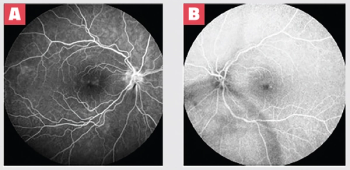
How long-term intravitreal steroid technology fits into a modern clinic.



